|
The Serer people, one of the oldest ethnic groups, developed powerful kingdoms like Sine and Saloum, known for their complex religious systems, strong social organisation, and resistance to Islamic conversion for centuries. The Wolof Empire, which rose to prominence between the 13th and 15th centuries, became the most powerful entity in the region. With its stratified caste system and centralised power under a sovereign known as the Buur Baol, it controlled trade routes from the interior to the coast. The Jolof (or Djolof) Empire began as a voluntary confederation of Wolof states but eventually exerted hegemony over them and neighbouring peoples, becoming a significant power before fragmenting in the mid-16th century. This era was characterised by complex trade in gold, salt, ivory, and cloth. It was a time of great cultural flourishing, where griots (oral historians and musicians) preserved history, and where the unique philosophies and social codes of the Wolof, Serer, and others were codified. The 15th century marked a significant turning point in Senegal's history with the arrival of Portuguese explorers on the coast in 1444, initiating centuries of European contact and marking the beginning of sustained European exploration, trade, and eventual colonisation along the West African coast. The first Portuguese, led by Dinis Dias reached the Cap-Vert peninsula (modern-day Dakar) seeking sought gold, ivory, and spices, but quickly realised the region’s potential for another lucrative trade: enslaved Africans for which they exchanged textiles, horses, and metal goods. They also sought gold dust, and gum arabic - a valuable resin from acacia trees, used in Europe for ink and medicine. By the mid-15th century, the Portuguese had established trade posts along the Senegal River, dealing with local Wolof and Serer kingdoms, and taken control of Gorée Island, constructing one of the first documented slave houses on the island in 1536. Its infamous "Door of No Return" stands as a haunting memorial to the millions of Africans who were forcibly taken from their homeland. While the scale of Gorée's operations has been debated, its powerful symbolism as a site of memory is undeniable. The Wolof and Jolof empires, however, maintained significant control over trade, often dictating terms to foreign merchants but local kingdoms, sometimes willingly and other times under coercion, engaged in raids and sales of prisoners to the Europeans as the transatlantic trade in slavery grew, an exploitative system that disrupted African societies while enriching European merchants. Despite this, Senegal's cultures - Wolof, Serer, Mandinka, and others - remained resilient. However, while some of these African rulers resisted European dominance, others strategically collaborated to strengthen their own positions. Over the following centuries, the French, British, and Dutch vied for control of Senegal's strategic ports and trade. France eventually emerged dominant, establishing trading posts at Saint-Louis (which became the capital of French West Africa) and Gorée. Through a combination of military conquest and treaties, France gradually extended its control inland, overcoming fierce resistance from leaders like Lat-Dior Ngone Latyr Diop, the last damel (king) of Cayor, who fought to preserve his kingdom's independence. By the late 19th century, Senegal was fully integrated into French colonial Africa. The French implemented a policy of assimilation, and the Four Communes (Saint-Louis, Gorée, Dakar, and Rufisque) were granted special status. Their inhabitants, Les Originaires, were offered French citizenship and the right to elect a deputy to the French Parliament in Paris. This unique arrangement produced a class of Western-educated Afro-European intellectuals, like Blaise Diagne, a French Senegalese politician who was a member of the French Chamber of Deputies from 1914 to 1934, representing the Four Communes of French Senegal and the first African elected to that position. However, the seeds of Senegal's independence were already being sown during this colonial period.
|
Senegal History |
Senegal History |
Senegal History | Senegal History |
Explore all about the West African nation of Senegal in articles, pictures, videos and images.
More >
|
|
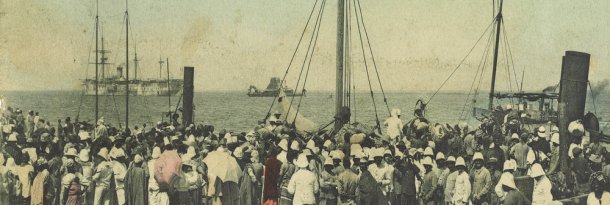
|
The experiences of Senegalese tirailleurs (riflemen) who fought for France in both World Wars exposed the contradictions between fighting for freedom abroad while being denied it at home. This, coupled with the rise of pan-Africanism and nationalist movements across the continent, fuelled the desire for self-determination and after the Second World War political parties formed.
The post-independence era was then defined by nation-building, economic challenges, and a commitment to democratic stability with Senghor, a proponent of the philosophy of Négritude (a celebration of African heritage and identity), ruling for two decades. He established a socialist, yet pragmatic, one-party state, but maintained close ties with France. In a move unprecedented in Africa, he voluntarily retired from politics in 1980, handing power to his chosen successor and Prime Minister Abdou Diouf (below) in 1981. Interestingly, despite independence, Senegal's currency rate continued to be fixed by France, education was taught in French and the French continued to advise the President in all political matters.
|
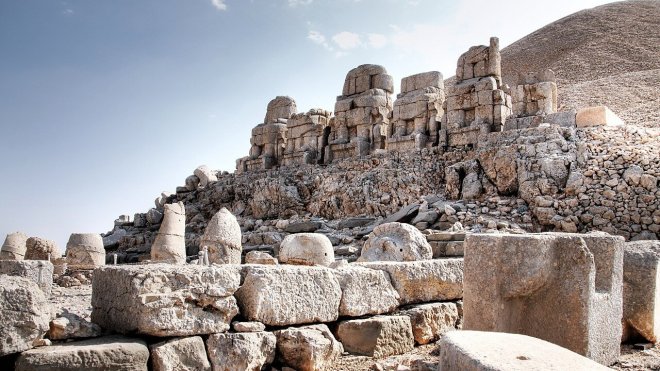
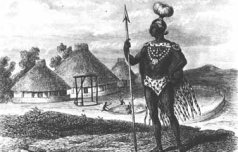
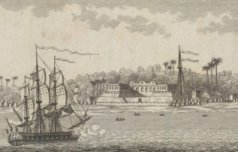
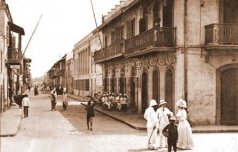

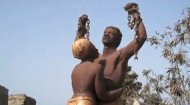
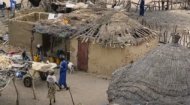
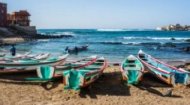
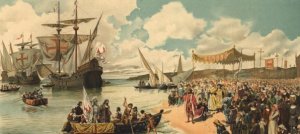
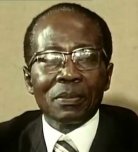 The most significant was the Senegalese Democratic Bloc (BDS), led by a sophisticated intellectual and poet named Léopold Sédar Senghor (left) who, far from having an army and/or militant background, was a distinguished politician who helped helped draft the then French President's new constitution for France in 1958. Senghor, along with Mamadou Dia, skillfully navigated the political landscape. As such, unlike many colonies that won independence through bloody revolution, Senegal's path was largely political and diplomatic. After a brief and ill-fated federation with French Sudan (who soon broke away to form the Republic of Mali), Senegal achieved full independence on April 4, 1960 with Senghor as its first president.
The most significant was the Senegalese Democratic Bloc (BDS), led by a sophisticated intellectual and poet named Léopold Sédar Senghor (left) who, far from having an army and/or militant background, was a distinguished politician who helped helped draft the then French President's new constitution for France in 1958. Senghor, along with Mamadou Dia, skillfully navigated the political landscape. As such, unlike many colonies that won independence through bloody revolution, Senegal's path was largely political and diplomatic. After a brief and ill-fated federation with French Sudan (who soon broke away to form the Republic of Mali), Senegal achieved full independence on April 4, 1960 with Senghor as its first president.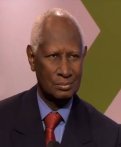 Diouf continued Senghor's policies of liberalisation, though his tenure was also marked by economic difficulties and a simmering separatist conflict with two separatist factions of the Movement of Democratic Forces of Casamance (MFDC) in the south of the country. One of Diouf's first acts as president was to form the Senegambia Confederation between Senegal and Gambia aimed at enhancing cooperation between the two countries, particularly in terms of their armed forces and security. This confederation lasted until late 1989 when Senegal, frustrated that its inner neighbour didn't want to pursue further integration in fear of losing its identity, dissolved it.
Diouf continued Senghor's policies of liberalisation, though his tenure was also marked by economic difficulties and a simmering separatist conflict with two separatist factions of the Movement of Democratic Forces of Casamance (MFDC) in the south of the country. One of Diouf's first acts as president was to form the Senegambia Confederation between Senegal and Gambia aimed at enhancing cooperation between the two countries, particularly in terms of their armed forces and security. This confederation lasted until late 1989 when Senegal, frustrated that its inner neighbour didn't want to pursue further integration in fear of losing its identity, dissolved it.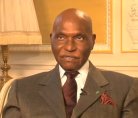 Diouf served three terms as president from 1981 to 2000 and allowed other political parties to form. Ironically this move fragmented the opposition securing him 83.5% of the vote in 1983 however his position had weakened to 72.3% in the next election in 1988 with main opposition leader Abdoulaye Wade getting 25.8% of the vote. In 1993 Diouf's vote was reduced further to 58%, and in 2000 he was defeated and succeeded by Senegalese Democratic Party opposition leader Wade. Diouf gave up power voluntarily and stepped aside, the first time a West African leader had done, securing him an enduring place in the mindset of West Africa.
Diouf served three terms as president from 1981 to 2000 and allowed other political parties to form. Ironically this move fragmented the opposition securing him 83.5% of the vote in 1983 however his position had weakened to 72.3% in the next election in 1988 with main opposition leader Abdoulaye Wade getting 25.8% of the vote. In 1993 Diouf's vote was reduced further to 58%, and in 2000 he was defeated and succeeded by Senegalese Democratic Party opposition leader Wade. Diouf gave up power voluntarily and stepped aside, the first time a West African leader had done, securing him an enduring place in the mindset of West Africa.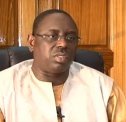 Wade (above) went onto win the election in 2007, however opposition parties claimed the vote had been rigged and the subsequent parliamentary elections were boycotted by those opposition parties. Despite having agreed not to, Wade was later to confirm he would stand again in 2012. He did so but lost the first round when all other candidates rallyed round opposition leader Macky Sall (left) who had formerly served as Prime Minister under Wade before being removed and forming his own party. Wade subsequently went down to an inglorious defeat but congratulated his opponent and left office peacefully, with President Macky Sall being re-elected in the 2019 election. More recently, Macky Sall served as the fourth president of Senegal from 2012 to 2024, having previously been the eighth prime minister from 2004 to 2007. He oversaw significant infrastructure projects but also faced accusations of suppressing political opposition. The recent 2024 election saw Bassirou Diomaye Faye ascend to the presidency, marking a new chapter in Senegal's history.
Wade (above) went onto win the election in 2007, however opposition parties claimed the vote had been rigged and the subsequent parliamentary elections were boycotted by those opposition parties. Despite having agreed not to, Wade was later to confirm he would stand again in 2012. He did so but lost the first round when all other candidates rallyed round opposition leader Macky Sall (left) who had formerly served as Prime Minister under Wade before being removed and forming his own party. Wade subsequently went down to an inglorious defeat but congratulated his opponent and left office peacefully, with President Macky Sall being re-elected in the 2019 election. More recently, Macky Sall served as the fourth president of Senegal from 2012 to 2024, having previously been the eighth prime minister from 2004 to 2007. He oversaw significant infrastructure projects but also faced accusations of suppressing political opposition. The recent 2024 election saw Bassirou Diomaye Faye ascend to the presidency, marking a new chapter in Senegal's history.


